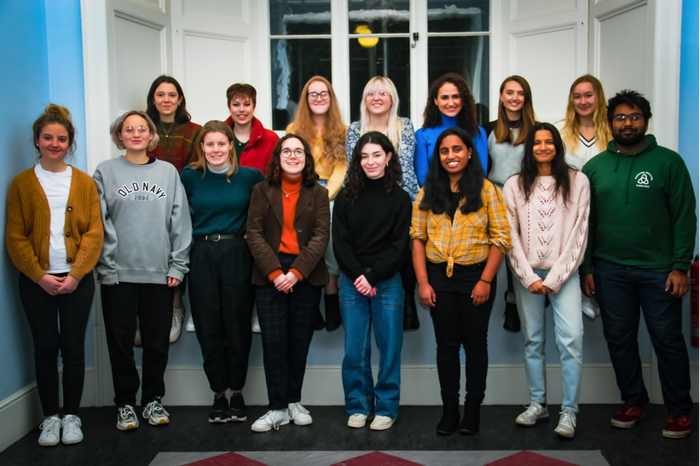‘These drugs don’t make me superhuman’: Students on study pills
Varsity investigates the use of ‘study drugs’ among students with ADHD and those hoping to better their concentration

To anyone with ADHD, Ritalin, Modafinil, and Adderall are familiar terms. These cognitive enhancing drugs boost concentration, problem-solving capacities, and task-related enjoyment.
“I tell people that my brain does not work like their brain, I can’t start a task and finish it”, finalist Linda tells me. She was diagnosed with ADHD in her second year. “These drugs don’t make me superhuman, they just mean I can do my degree.”
However, these drugs are increasingly being used by others too, Cambridge professor Barbara Sahakian tells me.
Sahakian links this increase to the nature of work today. “Work used to be done in sequences. You finished one job before you started another. Now, people’s attention is flickering from one task to another, they’re on their computers and their phones, they work in streams.”
“Students use it to cram before exams, which might be detrimental to their results. It disrupts sleep patterns, which can start a vicious circle, where the drug is then needed to counter the effect of the lack of sleep.”
A Trinity student tells me he needs Ritalin ‘to actually work on my boring degree’. He says he was using it for about a month or two without a prescription, and realised ‘wow, this is good’. Now, he is diagnosed with ADHD, and prescribed the drug.
He tells me he now finds his degree easier to do, but the drug ‘sort of numbs out everything else’. He recently went to a wedding without feeling anything.
A 2009 Varsity survey found that 10% of Cambridge students had used “study drugs”. A 2018 Tab survey found that 17% of students had used the drugs, suggesting their use had increased 70% throughout the decade.
Sahakian thinks the priority should be to enable individuals to use “smart drugs” safely. She advocates for drugs like Modafinil to be assessed for their long-term health consequences, before being made available as over-the-counter medication.
“People are using Ritalin away from the supervision of a doctor. They’re getting it off the internet, from China, India, or Russia. They’re getting it off their friend’s prescriptions. They don’t know which doses to take or whether they have any contraindications. They might be mixing it with other drugs.”
Cambridge graduate Caroline Calloway became famous by sharing snippets of her fairy-tale-like Cambridge experience on social media, from pictures of balls to dates in castle-like surroundings. Her talent for hosting parties earned her the nickname of the “Cambridge gatsby”.
While she was sharing these snippets of perfection, she was addicted to Adderall, and taking this ‘smart drug’ at near fatal doses. “Adderall murdered my life, and I’ll never touch it again - but drugs are fun”, she believes.
According to Sahakian, the NHS avoids prescribing Adderall as much as possible. “It can cause psychosis. It is prescribed to people with ADHD only if the other drugs, like Ritalin, have failed.”
A Selwyn undergraduate tells me many of the students at her private school in London used unprescribed ‘smart drugs’ to get into the best Universities, during six form. It helped them deal with academic pressure.
Sahakian tells me the use of ‘study drugs’ on developing brains is worrying. Its exact consequences are unclear, given the lack of studies on the topic. “People should have better work-life balances, rather than having to take the drugs to be able to work more and more.”
Linda tells me that people often ask her how she was able to get through high-school and get into Cambridge, if she had unmedicated ADHD. “I tell them that I could do it because there was less work. It’s impossible in Cambridge.”
Linda’s first experience with Ritalin was bad. “When I started taking Ritalin, I was mixing it with coffee. I wouldn’t eat all day. When it wore off, I would feel terrible, very depressed. Your mind goes from focused to even worse than it was before.
“Now I don’t mix it with coffee, and I take antidepressants, so everything is flattened out. It’s much better. I can sleep properly.
“Different people react differently to the medication. Personally, it was quite a journey, but Ritalin works for me now.”
 Comment / Cambridge students are too opinionated 21 April 2025
Comment / Cambridge students are too opinionated 21 April 2025 Comment / Does the AI revolution render coursework obsolete?23 April 2025
Comment / Does the AI revolution render coursework obsolete?23 April 2025 Comment / Cambridge’s tourism risks commodifying students18 April 2025
Comment / Cambridge’s tourism risks commodifying students18 April 2025 News / News in brief: campaigning and drinking20 April 2025
News / News in brief: campaigning and drinking20 April 2025 Interviews / Meet the Chaplain who’s working to make Cambridge a university of sanctuary for refugees20 April 2025
Interviews / Meet the Chaplain who’s working to make Cambridge a university of sanctuary for refugees20 April 2025






